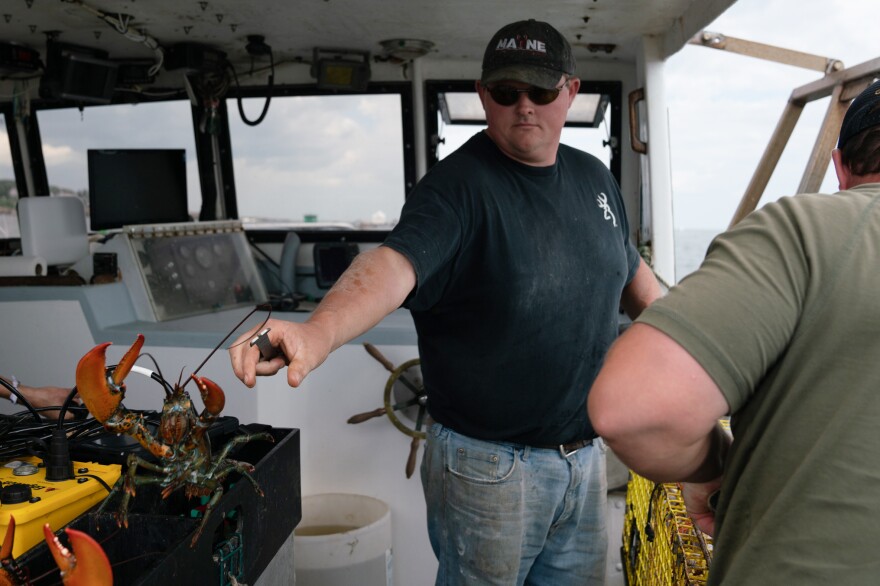The National Oceanic and Atmospheric Administration is considering a new round of measures aimed at reducing the risks that commercial fishing poses to the endangered North Atlantic right whale population.
Several hundred people attended a virtual meeting Tuesday evening, which NOAA officials billed as a forum to collect feedback from fishermen about possible trap limits and more seasonal closures and gear changes.
Most of the speakers were Maine lobstermen, who believe the changes will devastate their businesses and the state's economy.
"If these things are implemented as I see, we're going to be turned into seasonal communities," said Jason Joyce, a fisherman from Swan's Island. We're not going to be year-round communities. I think it's a shame, and honestly being a taxpayer I'm ashamed of my government for pushing this on me."
NOAA implemented an initial set of restrictions last year, which included a seasonal closure of nearly 1,000 square miles of fishing grounds in Maine and new gear changes for some. Agency officials believe those measures will reduce the risk of death and serious injury to whales by 46%, but they're still looking for further risk reductions of another 44%.
The agency is now considering a cap on vertical lines, trap limits and more seasonal closures in the Gulf of Maine, among other ideas, which NOAA officials said could be part of upcoming modifications to the Atlantic Large Whale Take Reduction Plan.
The goal, NOAA officials said, is to achieve a 90% risk reduction from fixed gear fisheries.
There are an estimated fewer than 340 North Atlantic right whales today. A severely entangled right whale was recently spotted 15 miles south of Nantucket.
Many lobstermen dismissed the idea that their industry is responsible for whale entanglements, and they urged the agency to better track whale movements.
"All you're doing is just piling more on to us to the point of being ridiculous," said fisherman Brian Tripp. "It's impossible now to succeed. I kept jumping through hoops. I've jumped through every hoop you've given me. But you're making it ridiculous now. The hoop... I can't even fit through it."
Several hundred people attended Tuesday's virtual meeting, and several dozen others gathered at listening events organized by the Maine Lobstermen's Association in Ellsworth and Brunswick.
The vast majority of comments came from Maine lobster fishermen.
But Gib Brogan from the conservation group Oceana argued that the industry could achieve a comparable catch with new gear and fewer vertical lines.
"This action should have a hard set of incentives to transition to on-demand or ropeless gear," he said. That is the future for these fisheries, and the Fisheries Service should include a range of alternatives to help ropeless and on-demand gear move along."
Final rulemaking for this next phase is likely two years away, NOAA officials said Tuesday. But Patrick Keliher, commissioner for the Maine Department of Marine Resources, said the timeline is too short to provide meaningful input.
"NOAA should do its best to give an understanding of what these impacts are and hear the people from the state of Maine, as well as up the East Coast," he said. "These acts are potentially going to be devastating."




